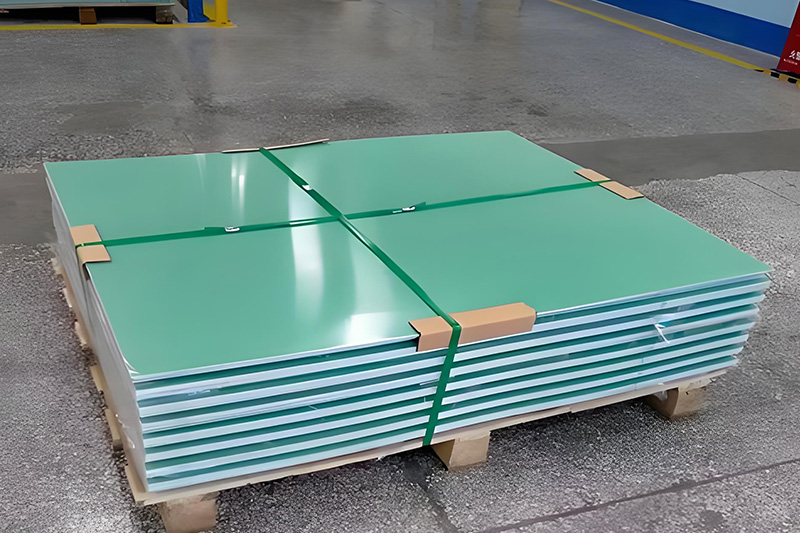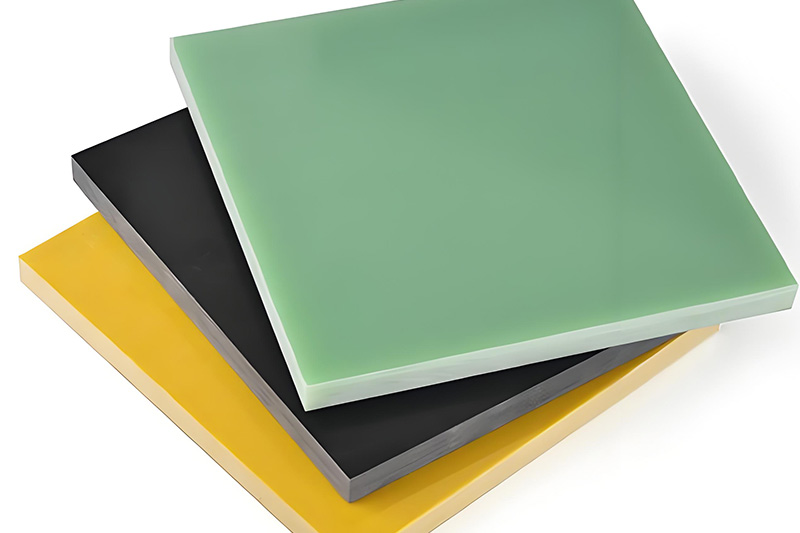G10 fiberglass sheet has become the insulation material of choice for dry-type transformers due to a combination of outstanding material performance, manufacturing adaptability, cost-effectiveness, and environmental sustainability. This article explores the key reasons behind this widely adopted selection.
In electrical equipment, the performance of insulation materials directly impacts operational safety and reliability. G10 fiberglass sheet is made from alkali-free glass fibers reinforced with epoxy resin, and the composite structure delivers outstanding electrical insulation. It effectively isolates electrical current, preventing breakdowns and leakage, and ensures stable operation of dry-type transformers under high-voltage and high-current conditions. Its stable and long-lasting insulation performance makes it an ideal choice for transformer applications.
During operation, dry-type transformers are subject to various mechanical stresses such as electromagnetic forces, thermal expansion, and external vibration. G10 fiberglass sheet offers high flexural, compressive, and impact strength, enabling it to withstand these stresses without deformation or damage. This helps maintain the structural integrity of the transformer and prevents insulation failure caused by mechanical damage.

Dry-type transformers generate significant heat during operation. If the insulation material lacks heat resistance, its insulating properties may degrade or even fail. G10 fiberglass sheet provides excellent thermal resistance, with a high heat distortion temperature and low thermal expansion coefficient, making it resistant to warping or cracking under high temperatures. Additionally, its strong flame-retardant properties help prevent fire hazards, further improving the safety of the system.
During the manufacturing of dry-type transformers, insulation materials must undergo cutting, drilling, and forming processes. G10 fiberglass sheet offers excellent machinability, with smooth cutting surfaces, high drilling precision, and good forming results. This contributes to lower manufacturing costs and improved production efficiency. Additionally, its superior dimensional stability ensures that it resists deformation caused by environmental factors, maintaining the manufacturing precision and operational stability of the transformer.
In industrial environments, transformers may be exposed to various chemical substances such as acids, alkalis, and salts. G10 fiberglass sheet is resistant to many chemicals and can maintain stable performance in harsh conditions. This makes it a reliable material in diverse industrial applications, effectively prolonging the service life of the transformer.

Although the initial purchase cost of G10 fiberglass sheet may be higher, its outstanding performance, long service life, and low maintenance requirements offer excellent overall value. Compared to traditional insulation materials, it significantly reduces repair and replacement costs caused by insulation failure, lowering the total lifecycle cost of the transformer.
With growing awareness of environmental protection, electrical equipment manufacturers are placing increasing importance on the eco-friendliness of materials. G10 fiberglass sheet produces minimal waste during manufacturing and is recyclable. It does not release harmful substances during use, reducing environmental pollution and resource waste while aligning with principles of sustainable development.
In real-world applications, G10 fiberglass sheet can withstand complex working environments such as high temperatures, high humidity, and high altitudes. It is also highly compatible with metals like copper and aluminum, as well as with other insulation materials, making it a reliable component of transformer insulation systems.
With its outstanding insulation properties, high mechanical strength, excellent thermal resistance, chemical corrosion resistance, easy machinability, cost-effectiveness, and environmental sustainability, G10 fiberglass sheet has become the preferred insulation material for dry-type transformers. It ensures safe, reliable, and efficient operation of transformers, meeting the stringent demands of modern electrical systems. As technology continues to advance and applications expand, the use of G10 fiberglass sheet in dry-type transformers is expected to grow even further.
| Advantage Category | Specific Performance | Impact on Dry-Type Transformers |
| Insulation Performance | Made of alkali-free fiberglass and epoxy resin, effectively isolates current, prevents breakdown and leakage; stable and long-lasting performance | Ensures stable operation under high voltage and high current conditions |
| Mechanical Strength | High flexural, compressive, and impact strength | Withstands mechanical stress during operation, maintains structural integrity, prevents insulation failure |
| Heat Resistance & Flame Retardancy | High heat distortion temperature, low thermal expansion coefficient, excellent flame retardancy | Maintains stable performance at high temperatures, prevents fire hazards |
| Machinability | Excellent workability; smooth cutting surfaces, high drilling precision, good forming quality, and dimensional stability | Meets manufacturing needs, reduces costs, improves efficiency, ensures production precision |
| Chemical Resistance | Resistant to various chemicals | Maintains performance in harsh industrial environments, extends service life |
| Economic Cost | Higher initial cost but superior performance, long lifespan, and low maintenance costs | Reduces repair and replacement expenses, lowers total lifecycle cost |
| Environmental Sustainability | Minimal production waste, recyclable, emits no harmful substances during use | Reduces pollution and resource waste, aligns with eco-friendly practices |
| Adaptability & Compatibility | Withstands complex environments; highly compatible with various materials | Adapts to diverse working conditions, forms a stable insulation system |
If you need our products please write down any questions, we will reply as soon as possible.
There are three ISO certificates for quality certification. The certificates will be shown later. ISO
After receiving the advance payment, the production cycle is 15-25 days. And the transportation cycle should be calcul……
We supply with installation guide and user manual for each transformer. If you do not understand them. We will offer v……